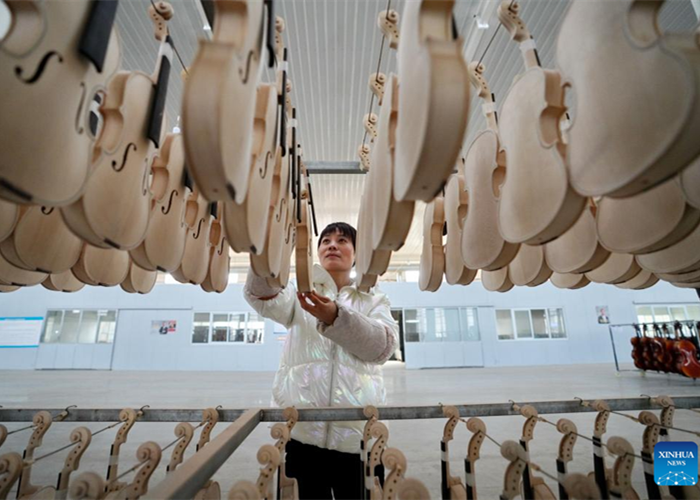Women Use Personal Stories to Warn Against Financial Scams
The experience of being defrauded by illegal fundraising in 2016 has sharpened 80-year-old Zhao Yinguang's skills in helping others to avoid similar financial and emotional losses. She has assembled a team of avengers, made up of sliver-haired peers.
After retiring, Zhao, a resident of Jinan, capital of Shandong Province, registered a dance school for seniors with an asset management company that delivered several presentations to the group, pledging that investments would earn quarterly interest as high as 14 percent.
Attracted by the promise of high returns, Zhao and several other seniors invested. She personally put in 1.04 million yuan ($160,264). Months later, the company vanished, leaving an empty office and disconnected phones.
At first, Zhao was reluctant to tell her story to anybody, including her husband, son and daughter, out of shame and guilt for losing her money, including the compensation the family received for the demolition of their old house, she says.
She wandered the streets in despair and was nearly hit by a car, saved only by a nearby pedestrian who pulled her out of the way.
But then she realized that many seniors had probably been defrauded, and she wanted her experience to serve as a warning. Zhao has no idea how many times she has shared her story, which is now well-known in the city.
Supported by the Jinan bureau of financial supervision and administration, Zhao, together with several women who had also been swindled, founded a team in May 2017 to raise awareness — especially among the elderly — about illegal fundraising and financial scams. Her effort dovetailed with local government's efforts to fight such scams and protect people's interests.
More than 7,500 cases of illegal fundraising were handled in China last year, according to a conference presented by several ministries on April 22.
A regulation to prevent and handle illegal fundraising took effect on May 1 amid the country's efforts to promote healthy economic development and maintain social stability. The regulation helps to defuse risks and protect ordinary people.
"Some organizations have lured the elderly by offering gifts or healthcare services in presentations. They collect money from elderly people and promise them lucrative returns on their investment," Zhao says.
"Many elderly people can't tell which fundraising activities are illegal. Many people who were swindled had decent work before they retired," says Zhao, who had been a senior manager at a Jinan-based motorbike company.
Zhao says her experience is useful in helping the elderly avoid scams. Every time Zhao shares her story, her listeners are shocked.
"We rang a warning bell for those who are on the brink of being swindled and stopped those who were already being scammed from going further," she says.
Wu Zhe, who worked for a Jinan foundation for physically challenged people, says, "Once we arranged for 30 people to attend a class delivered by Zhao's team, but more than 130 came."
Upon hearing Zhao's story, many people waved her brochures in appreciation. "Her true story has influenced them," Wu says.
Supported by the local government, the team has set up branches in more than 80 communities to spread knowledge about illegal fundraising. In addition to brochures, which include moving, real-life victim accounts, the team also delivers their message in numerous ways, even operas, which attract audiences and make the information easier to remember.
"Seniors are a major target in fraud-related cases. The team has helped a lot of seniors to avoid scams," says Geng Hao, who works at the Jinan bureau of financial supervision and administration.
Shandong has established a monitoring and warning system to watch for illegal fundraising. It will play a major role in rooting out illegal activities, Geng says.
Zhao and her teammates, meanwhile, will do their part as long as they are needed.
"We know our stories prevent other people from being swindled," she says.
(Source: China Daily)
Please understand that womenofchina.cn,a non-profit, information-communication website, cannot reach every writer before using articles and images. For copyright issues, please contact us by emailing: website@womenofchina.cn. The articles published and opinions expressed on this website represent the opinions of writers and are not necessarily shared by womenofchina.cn.








 WeChat
WeChat Weibo
Weibo 京公网安备 11010102004314号
京公网安备 11010102004314号